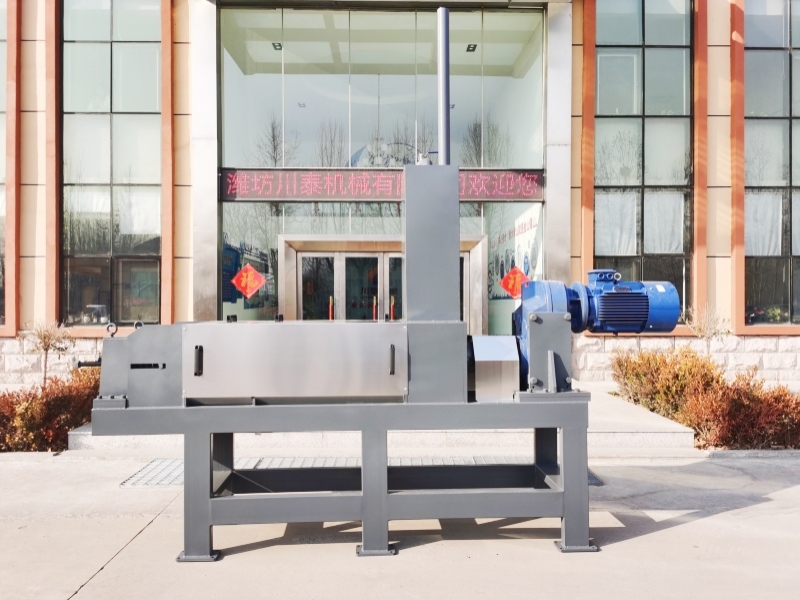
Cow Dung Press Dehydrator
Cow dung, a byproduct of livestock farming, has long been considered an environmental challenge due to its odor and potential for water pollution. However, innovative technologies like the cow dung press dehydrator have emerged as a solution to transform this waste into a valuable resource. This article explores the workings and benefits of a cow dung press dehydrator, shedding light on its significance for sustainable agriculture and waste management.
The Cow Dung Press Dehydrator Mechanism:
A cow dung press dehydrator is a mechanical device designed to efficiently separate moisture from cow dung, reducing its volume and converting it into dried organic matter. The machine operates through a series of processes:
Collection: Fresh cow dung is collected from livestock facilities and loaded into the dehydrator's inlet.
Compression: The cow dung is compressed using a hydraulic or mechanical mechanism, extracting excess water in the process. This compression significantly reduces the moisture content of the dung.
Dehydration: The compressed cow dung is then subjected to further dehydration, often involving the use of heat or air circulation. This step ensures that any remaining moisture is removed, leaving behind dry and odorless organic matter.
Output: The final output is a dry and compact material that can be used for various applications, such as organic fertilizers, biogas production, and even as a potential energy source.
Benefits and Applications:
The cow dung press dehydrator offers several noteworthy benefits:
Waste Management: By reducing the moisture content in cow dung, the dehydrator minimizes odor and prevents the leaching of pollutants into the environment. This addresses waste management concerns associated with livestock farming.
Fertilizer Production: The dehydrated cow dung can be processed into high-quality organic fertilizers rich in nutrients like nitrogen, phosphorus, and potassium. These fertilizers enhance soil fertility and crop yields, promoting sustainable agriculture.
Biogas Generation: Dried cow dung can serve as a valuable feedstock for biogas production. Biogas, primarily composed of methane, can be used as a renewable energy source for cooking, heating, and electricity generation.
Economic Opportunities: Adopting cow dung press dehydrators can create economic opportunities for farmers and entrepreneurs. The sale of organic fertilizers and biogas can generate additional income streams.
Environmental Sustainability: Utilizing cow dung as a resource contributes to circular economy principles by converting waste into useful products, reducing the demand for synthetic fertilizers, and mitigating greenhouse gas emissions.
Conclusion:
The cow dung press dehydrator exemplifies the intersection of technology, waste management, and sustainable agriculture. By transforming cow dung into valuable resources like organic fertilizers and biogas, this innovation offers a promising solution to the challenges posed by livestock waste. As societies increasingly focus on environmental sustainability, technologies like the cow dung press dehydrator play a vital role in creating a greener and more resource-efficient future.




If your company wants to establish a business relationship with us, please briefly describe the cooperation intention and send an email to:chuantaiscrewpress@gmail.com























































































![[list:title]](/static/upload/image/20240528/1716877114510915.jpg)